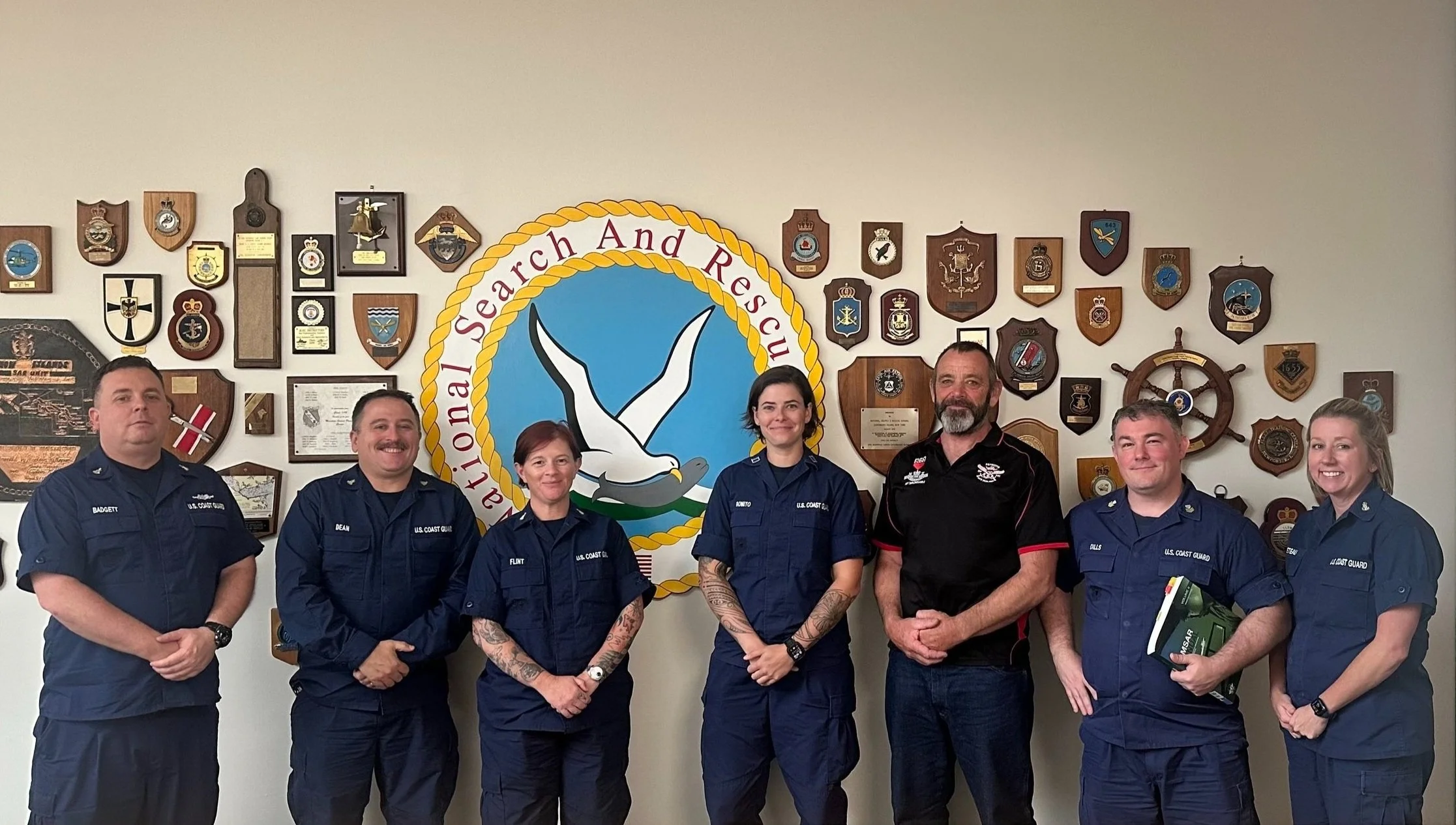A Look into the Life of a Selfless Hero
Sergeant Pete Comer (third from the right) and the U.S. National SAR School staff.
Pete would not approve of this article, which is why he didn’t get a vote. He’s far too humble to accept praise or allow himself to be in the spotlight. Nevertheless, his story is worth telling, not for his benefit, but for our inspiration.
I met Sergeant Pete Comer of the Auckland Police Department in 2021. He contacted me while I was serving in the U.S. Coast Guard’s Office of Search and Rescue, asking if we could provide him with our most recent leeway data – information that helps search and rescue (SAR) planners calculate where an object will drift on the high seas. This seemed an odd request for a police department, but we made the information available – anything to help another SAR organization.
Little did I know then, but Pete, despite not having a formal background in oceanography or computer programming, had developed a computer-assisted drift modelling tool for use in maritime SAR incidents. He was entirely self-taught. But what he lacked in formal education, he more than made up for it in sheer force of will. But Pete’s not done. As I write this, he’s travelling the U.S. on an Indian motorcycle, meeting with SAR experts from a variety of fields, all to gather lessons learned to help improve New Zealand’s SAR network. This trip was made possible by the Woolf Fisher Trust Fellowship, awarded to Pete for his selfless work in SAR.
His latest stop was to the U.S. Coast Guard’s Training Center in Yorktown, Virginia, home of the U.S. National SAR School, a joint Air Force and Coast Guard program established in 1966.
Recently, Pete was part of a groundbreaking effort to develop a certification framework for SAR coordinators. Working side by side with fellow SAR experts from France, Australia, the U.S., and the U.K., this diverse team created the foundation for the world’s first professional certification program exclusively focused on the coordination component of regional and international SAR systems.
As Founder and CEO of the International Association of Search and Rescue Coordinators (IASARC), it is an honor to call Pete a friend and colleague. It is only because of the selfless and talented community of SAR experts that we can all Advance the Profession of SAR Coordination.
This tool, now having been refined over 14 years, is used by the Auckland Police to help save lives. It was developed singularly by Pete in his off time, with no funding. To ensure its accuracy, he’s consulted numerous experts and validated his work with real-world demonstrations.


